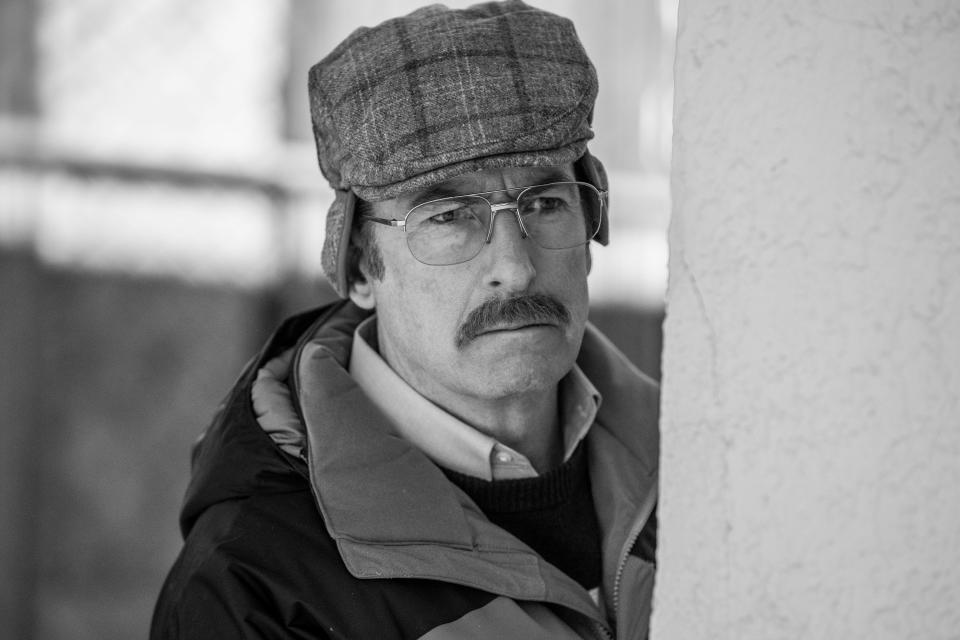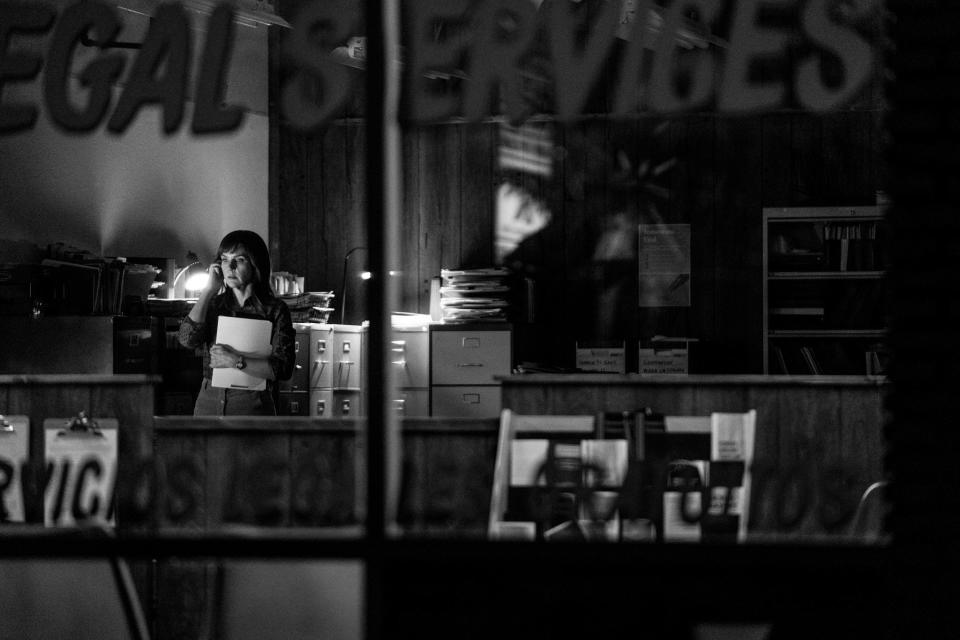'Better Call Saul' was a love story all along: How the finale cements its greatness (Spoilers!)
- Oops!Something went wrong.Please try again later.
- Oops!Something went wrong.Please try again later.
- Oops!Something went wrong.Please try again later.
- Oops!Something went wrong.Please try again later.
Spoilers ahead: Don't read until you've seen the "Better Call Saul" finale on AMC.
After all that, a happy ending.
Or as close as passes for one in showrunners Peter Gould and Vince Gilligan’s world. "Better Call Saul" (AMC) was never going to end with a triumphant ride off into the sunset, or even a quiet retirement in a Nebraska Cinnabon. After all of Saul Goodman's (Bob Odenkirk) chicanery – and the trail of laundered money, dead bodies and ruined lives in his wake – there could be only reckoning.
With the ominous title "Saul Gone," Monday night's finale promised to be devastating. The penultimate episode saw Saul's cover as mild-mannered Cinnabon manager Gene Takavic blown by a shrewd octogenarian (Carol Burnett), while Kim Wexler (Rhea Seehorn), a guilt-ridden, traumatized shell of her former self, hand-delivered a signed confession to Howard Hamlin's widow.
‘The ending is awesome’: Bob Odenkirk talks new book, saying goodbye to Saul Goodman

Wasn't it already all gone after that? What’s left for Gould and Gilligan to take?
The finale begins with a thought experiment and a jump back in time, to Season 5's blistering Episode 8, "Bagman," in which Saul and Mike Ehrmantraut (Jonathan Banks) wander the New Mexico desert with $7 million cash. Sun-blistered, dehydrated and having just evaded death, Saul asks Mike where he would go if he had a time machine. Would he go back and see the Civil War, or maybe ancient Rome? Mike chooses instead the seemingly innocuous date March 17, 1984 – the day he took his first bribe, the initiation of a series of events the savvy viewer knows will eventually lead to the murder of Mike's son.
Saul could choose to revisit any number of life-changing moments and write a happier ending for himself: the first day as a child he stole from his father's store; the time he drunkenly defecated through a sunroof; or when he set up his brother Chuck’s downfall, a move that led to his suicide.
Saul instead picks the day Warren Buffett took over at Berkshire Hathaway, so he could invest and become a billionaire.
"That’s it? Money?" Mike asks.
"What else?" Saul says.
'Breaking Bad': Bryan Cranston and Aaron Paul pose next to new statues in New Mexico
Saul plays the same game in another flashback, once again staring down the barrel of his life's choices in Season 5 of "Breaking Bad." An irritated Walter White (Bryan Cranston, relishing his return with snarling condescension) refuses to concede the scientific possibility of a time machine, even while locked in the basement cell of the vacuum-cleaner repairman they’ve just paid tens of thousands of dollars to give them new identities.
Walt, like Saul, is flush with options, points in time when he could have changed course. True to form, he picks the day he left the company he helped found, Gray Matter Technologies, yearning for lost fame and glory. Again, Saul deflects serious introspection.
In a third and final flashback, Chuck (Michael McKean) wanders his lamplit house carrying a paperback copy of H.G. Wells' "The Time Machine."

"If you don’t like where you’re heading, there’s no shame in going back and changing your path," Chuck tells his brother, a newly beleaguered public defender.
(Speaking of time machines, if you were to build one and use it to go back and tell someone in the '90s that this year's most intense dramatic confrontation would be between Burnett and "Mr. Show’s" Odenkirk, you’d be laughed back to the 21st century.)
But for all its flash and butterfly-effect plot machinations, "Better Call Saul" is no sci-fi work of easy wish-fulfillment. Saul doesn’t get his time machine. There’s no erasing Howard’s murder, his divorce from Kim, or the work he did in "Breaking Bad" to help build the meth empire that wrought so much death and destruction – the details of which Hank Schrader's widow, Marie (Betsy Brandt), reminds viewers of in an intense confrontation.
What Saul gets instead is one last crossroads to make the right choice. He can either selfishly embrace his Saul Goodman alter ego for good and get off with a slap on the wrist, or save what's left of Jimmy McGill – and set Kim free.
'One of the great joys of my life': ‘Better Call Saul’ MVP Rhea Seehorn makes directorial debut
Because after all that, "Better Call Saul" is a love story.
With brilliant writing, a charismatic lead and a romantic heroine who burns just as brightly, Gould and Gilligan took their unlikely spinoff starring the huckster comedic relief of one of the all-time-great dramas and made a prestige series that might, in certain lights, outshine the show that gave birth to it. It's good enough to make a shared cigarette in a supermax federal prison feel as intimate and devastating as the ending of "Casablanca."
In the end, "Better Call Saul" hands its deeply flawed hero a stiff sentence for his sins. But for Jimmy, it’s worth one last cigarette with Kim.
This article originally appeared on USA TODAY: 'Better Call Saul' spoilers: Does Goodman get away with it in the end?

